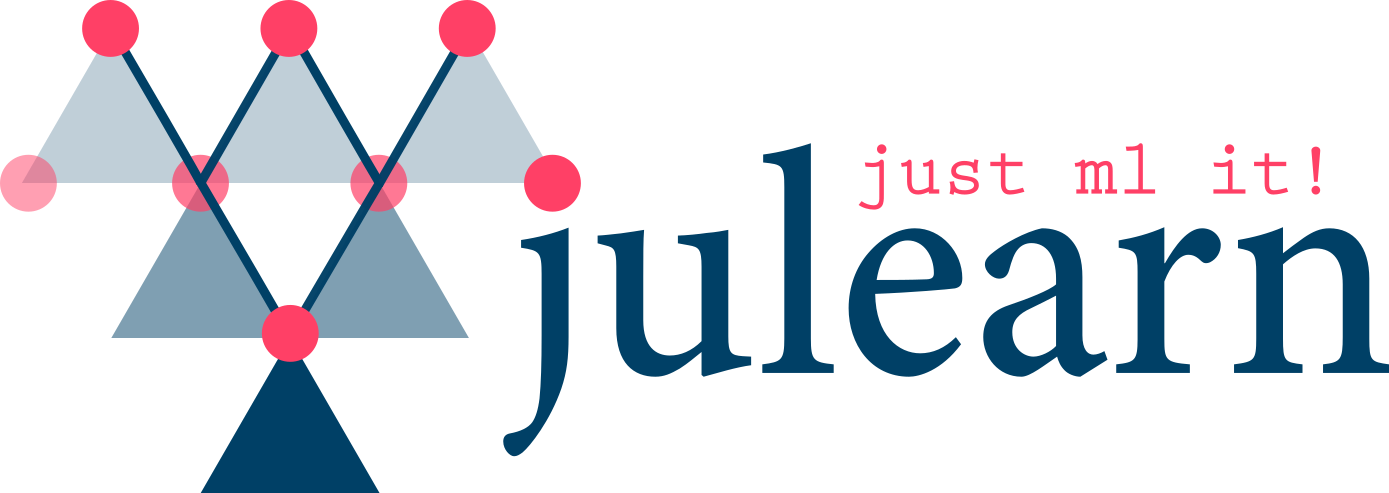Welcome to julearn’s documentation!#

… a user-oriented machine-learning library.
What is julearn?#
At the Applied Machine Learning (AML) group, as part of the Institute of Neuroscience and Medicine - Brain and Behaviour (INM-7), we thought that using ML in research could be simpler.
In the same way as seaborn provides an abstraction of matplotlib’s
functionality aiming for powerful data visualization with minor coding, we
built julearn on top of scikit-learn.
julearn is a library that provides users with the possibility of easy
testing ML models directly from pandas DataFrames, while keeping the
flexibility of using scikit-learn’s models.
To get started with julearn just keep reading here. Additionally you can
check out our video tutorial.
Why julearn?#
Why not just use scikit-learn? julearn offers three essential benefits:
You can do machine learning with less amount of code than in
scikit-learn.julearnhelps you build and evaluate pipelines in an easy way and thereby helps you avoid data leakage!It offers you nice additional functionality:
Easy to implement confound removal:
julearnoffers you a simple way to remove confounds from your data in a cross-validated way.Data typing:
julearnprovides a system to specify data types for your features, and then provides you with the possibility to filter and transform your data according to these types.Model inspection:
julearnprovides you with a simple way to inspect your models and pipelines, and thereby helps you to understand what is going on in your pipeline.Model comparison:
julearnprovides out-of-the-box interactive visualizations and statistics to compare your models.
Table of Contents#
Indices and tables#
Indices and tables#
If you use julearn in a scientific publication, please use the following reference
Hamdan, Sami, Shammi More, Leonard Sasse, Vera Komeyer, Kaustubh R. Patil, and Federico Raimondo. ‘Julearn: An Easy-to-Use Library for Leakage-Free Evaluation and Inspection of ML Models’. arXiv, 19 October 2023. https://doi.org/10.48550/arXiv.2310.12568.
Since julearn is also heavily reliant on scikit-learn, please also cite them: https://scikit-learn.org/stable/about.html#citing-scikit-learn